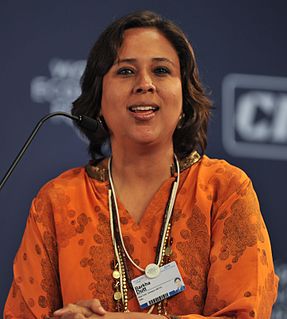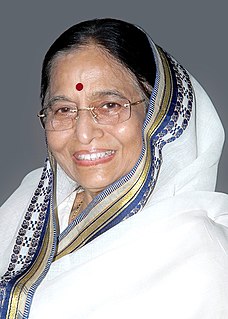A Quote by Barkha Dutt
There are only a handful of educational institutions that can be called emblems of a Thinking India.
Quote Topics
Related Quotes
India does not need to become anything else. India must become only India. This is a country that once upon a time was called 'the golden bird'. We have fallen from where we were before. But now we have the chance to rise again. If you see the details of the last five or ten centuries, you will see that India and China have grown at similar paces. Their contributions to global GDP have risen in parallel, and fallen in parallel. Today's era once again belongs to Asia. India and China are both growing rapidly, together. That is why India needs to remain India.
There is, between the sexes, a law of incessant reciprocal action, of which God avails himself in the constitution of the family, when He permits brothers and sisters to nestle about the same hearthstone. Its ministration is essential to the best educational results. Our own educational institutions should rest upon this divine basis.
We kind of reduce our responsibility to not saying the N-word and to condemning the Klansmen, rather than saying many of our celebrated institutions are systemically racist. Many of our institutions that deal with law enforcement or controlling the bodies of Black people are systemically racist. Many of our educational institutions are systemically racist. Many of our corporate institutions are systemically racist. We don't have those conversations, so things don't change.
I think it's very important to emphasize that there are many, many different educational institutions in what we call higher education, and they educate an enormous diversity of students. I think all of those institutions have to define particular roles for themselves; they can't do everything at once.
Whoever reaches into a rosebush may seize a handful of flowers; but no matter how many one holds, it's only a small portion of the whole. Nevertheless, a handful is enough to experience the nature of the flowers. Only if we refuse to reach into the bush, because we can't possibly seize all the flowers at once, or if we spread out our handful of roses as if it were the whole of the bush itself -- only then does it bloom apart from us, unknown to us, and we are left alone.































